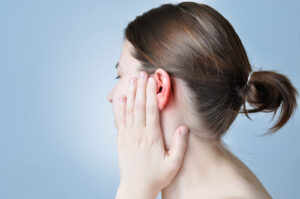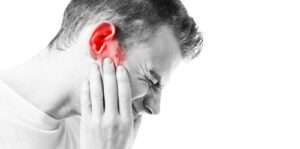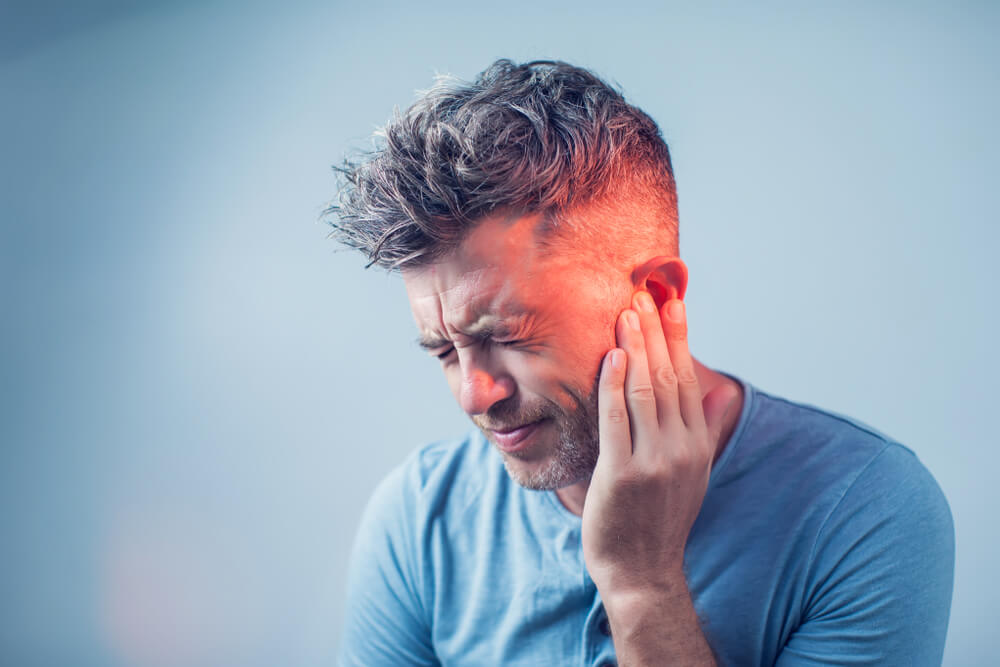Are you experiencing discomfort in your ear after undergoing a tooth extraction? You’re not alone. Earache after tooth extraction is a common concern that many individuals encounter. This article will delve into the possible causes of this discomfort, discuss when it warrants medical attention, and explore effective remedies to help alleviate your earache. By understanding the root of the problem, you can find relief from ear discomfort and ensure a smoother recovery process.
The Connection Between Tooth Extraction and Earache
Experiencing earache for multiple days after tooth extraction is common, stemming from the complex network of nerves in the facial and oral regions. Understanding the connection between tooth extractions, particularly wisdom teeth removal, and subsequent ear pain is crucial for patients undergoing these dental procedures. This connection highlights the intricate relationship between oral health and overall sensory experiences.
- Referred Pain: Earache following tooth extraction is often a result of referred pain, where the nerve pain or discomfort from the extraction site is felt in the ear. The trigeminal nerve, responsible for facial sensation, can transmit pain signals from the mouth to the ear, leading to this phenomenon.
- Wisdom Tooth Removal: Extraction of wisdom teeth, due to their location in the back of the mouth, is more likely to cause referred ear pain. The proximity of the wisdom teeth to the ear canal means that swelling and inflammation can indirectly affect the ear.
- Healing Process: During the healing process, the body’s response to the open wound left by tooth extraction can include swelling and inflammation, which can exert pressure on surrounding areas, including the nerves that lead to the ear, causing discomfort or earache.
- Dry Socket: A condition known as dry socket, where the blood clot at the extraction site fails to form or is dislodged, can lead to severe pain in the extraction area that radiates to the ear.
- Jaw Muscle Tension: Keeping the mouth open for extended periods during dental surgery can strain the jaw muscles, which can cause discomfort extending to the temporomandibular joints (TMJs) and ears.
- Infection: Though less common, an infection at the extraction site can lead to more severe pain, including ear pain, if the infection spreads or increases pressure on the nerves.
How to Differentiate Between Normal Post-Operative Discomfort and Earache
After dental procedures, patients often experience discomfort, including earache, as a natural part of the recovery process. Distinguishing between normal post-operative discomfort and a more concerning earache requires understanding the typical healing timeline and symptoms associated with dental interventions. This knowledge ensures timely identification of potential complications and appropriate management to facilitate a smoother recovery.
- Duration of Symptoms: Normal post-operative discomfort typically diminishes within a few days to a week as the healing progresses. Persistent or worsening ear pain beyond this period may indicate an earache unrelated to the standard healing process.
- Intensity of Pain: While mild to moderate discomfort is expected after dental work, severe ear pain that interferes with daily activities or sleep suggests a more serious issue that warrants further evaluation by a healthcare professional.
- Associated Symptoms: Common post-operative symptoms include slight swelling, bruising, and general discomfort around the treated area. Earaches accompanied by symptoms like fever, discharge from the ear, or significant swelling might point to an infection or other complications.
- Response to Pain Relief: Normal post-operative discomfort generally responds well to prescribed pain relief methods, including over-the-counter painkillers and cold compresses. If ear pain persists or does not respond to these interventions, it may indicate a more severe problem.
- Location of Pain: Discomfort localized to the area around the dental work site is typically expected. Pain that radiates to the ear extensively or feels deep within the ear canal could signify an earache requiring separate attention.
- Onset of Symptoms: Post-operative discomfort usually begins immediately after the anesthesia wears off and gradually improves. A delayed onset of severe ear pain might suggest a different cause, such as an ear infection or TMJ disorder exacerbated by the dental procedure.
Home Remedies for Managing Earache After Tooth Extraction

Managing earache after tooth extraction can often be effectively addressed with home remedies, providing relief and supporting healing. While some discomfort is expected following dental surgery, ear pain can be particularly distressing. These home remedies are designed to alleviate pain, reduce inflammation, and ensure a more comfortable recovery when experiencing ear pain without immediately resorting to medical intervention.
- Cold Compress: Applying a cold compress or ice pack to the side of the face can help reduce inflammation and numb the area, offering temporary relief from ear pain. It’s recommended to apply the compress for 15-minute intervals.
- Warm Salt Water Rinse: Rinsing the mouth with warm salt water can aid in keeping the extraction site clean, reducing the risk of infection that could contribute to earache. Ensure the water is not too hot to avoid irritation.
- Over-the-Counter Medications: Pain relief medications available without a prescription, like ibuprofen or acetaminophen, can efficiently alleviate pain. Nonetheless, it’s crucial to adhere to the recommended dosage and be mindful of any individual contraindications.
- Elevation: Keeping the head elevated, especially when sleeping, can help reduce swelling and discomfort in the ear and extraction site by preventing excessive blood flow.
- Garlic: Known for its natural antibacterial properties, garlic can be used as a home remedy. Chewing a clove of garlic on the opposite side of the extraction can help alleviate ear pain.
- Cloves or Clove Oil: Cloves have been traditionally used for toothache relief due to their pain-relieving and antibacterial properties. A cotton ball soaked in clove oil can be gently applied to the area around the extraction site, being careful not to touch the wound directly.
- Hydration and Soft Foods: Staying well-hydrated and consuming soft, non-irritating foods can prevent additional stress on the extraction site and associated structures, including the ear.
When to Seek Medical Attention for Earache Post-Extraction
While some discomfort is completely normal following tooth extraction, there are specific instances when earache post-extraction signals the need for medical attention. Differentiating between normal healing discomfort and symptoms indicative of complications is essential for ensuring timely and appropriate care and safeguarding against potential infections or other adverse outcomes.
- Persistent or Worsening Pain: If earache persists beyond the expected healing period of a few days, or if the pain intensifies instead of gradually subsiding, it’s a clear sign to seek medical evaluation.
- Signs of Infection: Symptoms such as increased swelling around the extraction site, fever, persistent bad taste, or pus discharge from the extraction site are indicative of an infection that requires professional treatment.
- Severe Symptoms: Experiencing severe symptoms such as dizziness, severe headache, or inability to open the jaw could indicate serious complications like a dry socket or infection spreading, necessitating immediate medical attention.
- Unresponsive to Home Remedies: Earache that does not respond to standard home care measures, such as cold compresses, pain relief medication, or salt water rinses, should be evaluated by a healthcare professional.
- Hearing Loss or Discharge: Any change in hearing or discharge from the ear itself is unrelated to normal post-extraction healing and should be assessed by a doctor to rule out ear infections or other conditions.
- Difficulty Swallowing or Breathing: If the earache is accompanied by difficulty swallowing or breathing, it’s crucial to seek medical attention immediately, as these could be signs of a more significant underlying issue.
Preventative Measures to Reduce the Risk of Earache After Dental Work
 Preventative measures are essential in reducing the risk of experiencing earache after dental work, as they target the underlying causes of ear popping and ensure a smoother recovery process. Patients can minimize discomfort and prevent ear pain associated with dental interventions by taking proactive steps before, during, and after dental procedures.
Preventative measures are essential in reducing the risk of experiencing earache after dental work, as they target the underlying causes of ear popping and ensure a smoother recovery process. Patients can minimize discomfort and prevent ear pain associated with dental interventions by taking proactive steps before, during, and after dental procedures.
- Discuss Concerns with Your Dentist: Before undergoing any dental procedure, discuss any previous experiences of earache or concerns with your dentist. This allows for tailored treatment plans that consider potential complications.
- Optimal Oral Hygiene: Maintaining optimal oral hygiene before and after dental work helps prevent infections that could lead to earaches. Regular brushing, flossing, and antiseptic mouthwash can keep bacteria at bay.
- Use of Proper Anesthesia: Ensure your dentist uses appropriate anesthesia during procedures to minimize discomfort and stress on the jaw and surrounding tissues, which can reduce the risk of referred pain to the ear.
- Avoiding Strenuous Activities: After dental work, avoiding strenuous activities that can increase blood pressure and swelling helps prevent complications that might cause earache.
- Proper Post-Operative Care: Follow your dentist’s post-operative care instructions closely, including taking prescribed medications, applying ice packs to reduce swelling, and eating soft foods to avoid unnecessary pressure on the jaw and ears.
- Regular Dental Check-Ups: Regular check-ups allow for early detection and treatment of potential dental issues before they escalate into conditions requiring interventions that might cause earache.
- Stress Reduction Techniques: Since stress can exacerbate the perception of pain, including earache, practicing stress reduction techniques such as deep breathing or meditation before and after dental procedures can help manage discomfort.
Professional Treatments for Earache Resulting from Tooth Extraction
Professional treatments for earache resulting from tooth extraction are designed to address the root cause of the pain and its symptoms, ensuring effective relief of unnecessary pain and promoting healing. When home remedies and preventative measures are insufficient, seeking professional medical intervention becomes essential to manage the discomfort and prevent further complications.
- Medical Evaluation: A thorough examination by a healthcare provider or dentist is crucial to determine the exact cause of the earache. This may involve dental X-rays or assessments to check for signs of infection, dry socket, or other complications related to the extraction site.
- Prescription Medications: Based on the evaluation, professionals may prescribe antibiotics to treat any infection causing the earache. Additionally, stronger pain relievers than those available over the counter may be recommended to manage severe discomfort.
- Drainage of Infections: If an abscess or infection is identified as the source of the earache, a professional may need to drain it surgically to alleviate pain and promote healing.
- Dry Socket Treatment: For earaches stemming from a dry socket, a dentist can apply a medicated dressing to the socket to protect it from further irritation, reduce pain, and accelerate the healing process.
- Physical Therapy: In cases where TMJ stress contributes to earache after an extraction, physical therapy may be advised to relieve tension in the jaw muscles and improve joint function.
- Specialized Ear Treatments: If the earache is determined to have an origin within the ear itself, such as an infection unrelated to the dental work, referral to an ear, nose, and throat (ENT) specialist for targeted treatment might be necessary.
- Follow-Up Care: Regular follow-up appointments are important to monitor the healing process, adjust treatments as needed, and ensure that the earache is resolving without leading to further issues.
In conclusion, experiencing an earache after a tooth extraction can be distressing and unexpected. While it may not be directly related to the wisdom teeth extraction procedure, the close proximity of the ear and jaw can lead to referred pain. The sensation can be caused by inflammation, muscle tension, or other factors involved in the healing process. It is essential to consult with your dentist or oral surgeon to rule out any potential concerns and ensure proper post-operative care. Following their professional guidance and practicing good oral hygiene can aid in reducing discomfort and promoting healing. Remember, each individual’s healing process may vary, and patience is key.
References
Complications After Dental Treatment – Mouth and Dental Disorders – MSD Manual Consumer Version
https://www.merckmanuals.com/home/mouth-and-dental-disorders/urgent-dental-problems/complications-after-dental-treatment
Why do I have nerve pain in my ear after my wisdom tooth extraction now?
https://www.cdhp.org/why-do-i-have-nerve-pain-in-my-ear-after-tooth-extraction/
After Your Oral Surgery
https://dental.washington.edu/wp-content/media/oral-surgery/Afteryouroralsurgery.pdf
Dry socket – Symptoms and causes
https://www.mayoclinic.org/diseases-conditions/dry-socket/symptoms-causes/syc-20354376
Earache
https://www.nhs.uk/conditions/earache/
